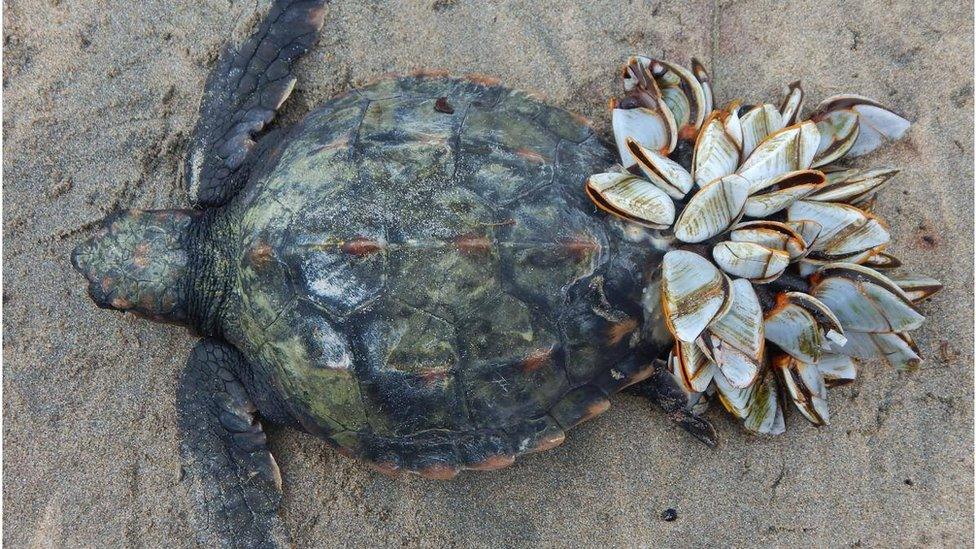Teenage Mutant Ninja Turtles: How terrapins arrived in Cardiff park
- Published
Some of the abandoned terrapins were taken from the park's lake and moved into the nearby conservatory
Visitors to one of Cardiff's most popular parks have been greeted by terrapins for decades.
But the reptiles were never meant to make Roath Park their home.
It seems many were dumped en masse during the 1990s after cartoon Teenage Mutant Ninja Turtles became a cult classic.
Park ranger, Gareth Stamp, said: "Everybody was so hyped up over the ninja turtles that they decided to go out and buy a little turtle."
He added: "They were a pet and they grew and grew and before they knew it they had a little one which turned into a big one."
Some of the abandoned terrapins were taken from the park's lake by rangers and moved into the nearby conservatory.
In 2002, a plan was hatched to capture the park's terrapins, external and fly them to a warmer climate in Tuscany.
But it seems it was unsuccessful, with Mr Stamp estimating about 15 of the terrapins from the 1990s live wild in the park's lake.
About 15 other terrapins live in the conservatory.
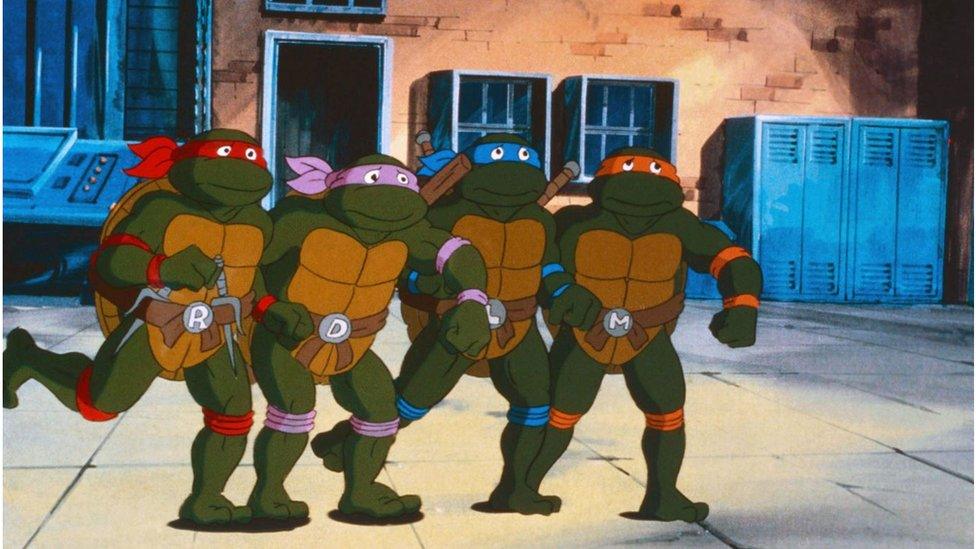
It is thought the terrapins' arrival was prompted by the Teenage Mutant Ninja Turtles
Mr Stamp said rangers can tell which turtles are from the 90s series' era due to their characteristics, such as colourings.
While their lifespan varies, terrapins can survive for decades, grow to the size of a dinner plate and be "quite labour intensive" to care for.
RSPCA Cymru said releasing unwanted exotic pets into the wild was "cruel and illegal".
"We'd urge anyone looking to take on the care of a reptile to do thorough research and understand the commitment owning such an animal will take, and the very complex needs they have," the charity said.
The importation of red-eared terrapins into the EU was banned in 1997, while red-eared, yellow-bellied and Cumberland terrapins are now considered "invasive alien species" under EU regulations and new legislation is due to come into force in December.
There are now strict restrictions on the sale, breeding, keeping and transportation of these terrapins, the charity said.
"At the start of the early 90s was when they ended up being dumped into lakes - not just across Cardiff, probably across the whole of the UK," Mr Stamp said.
"There's probably now millions on the loose, certainly well over 100 in Cardiff.
"We've still got some original ones in here."
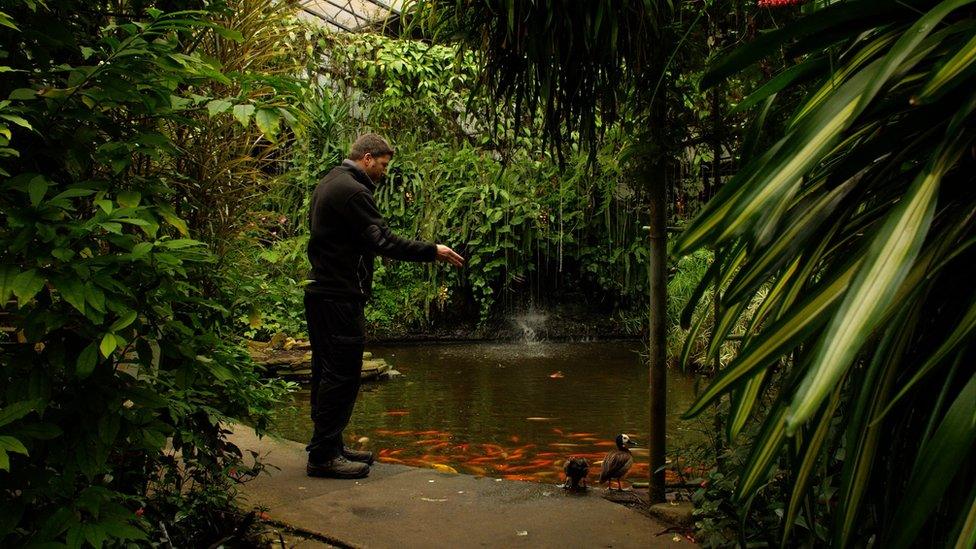
Park ranger Gareth Stamp said he can tell which terrapins are from the 90s because of their characteristics
Mr Stamp believes although the cartoon "made them extra popular", terrapins would still be in the park, just "not to the extent you see in here".
After the turtles' arrival, the park was asked to take on more from struggling families.
Dave Jones, who works at the park, said they had to put a stop to accepting them as they were "inundated".
He added: "Even to this day, I'm probably getting two or three offers every month."
Donated turtles are not accepted anymore and terrapins collected from the lake are not brought into the conservatory, due to contamination fears, so are re-homed through rescue centres.
Mr Stamp believes Roath Park became a popular spot for dumping the animals, because "it's open access and in the darkest of nights you could suddenly just [pop them] into the lake".
One thing that makes the numbers manageable is that the reptiles do not seem to be breeding, which could be down to the cold water.
"I would think by maybe 2050 there will be far fewer in the environment," said Mr Stamp.
When the sun comes out, the lake's terrapins can be see emerging from the lake to sunbathe, or "bask".
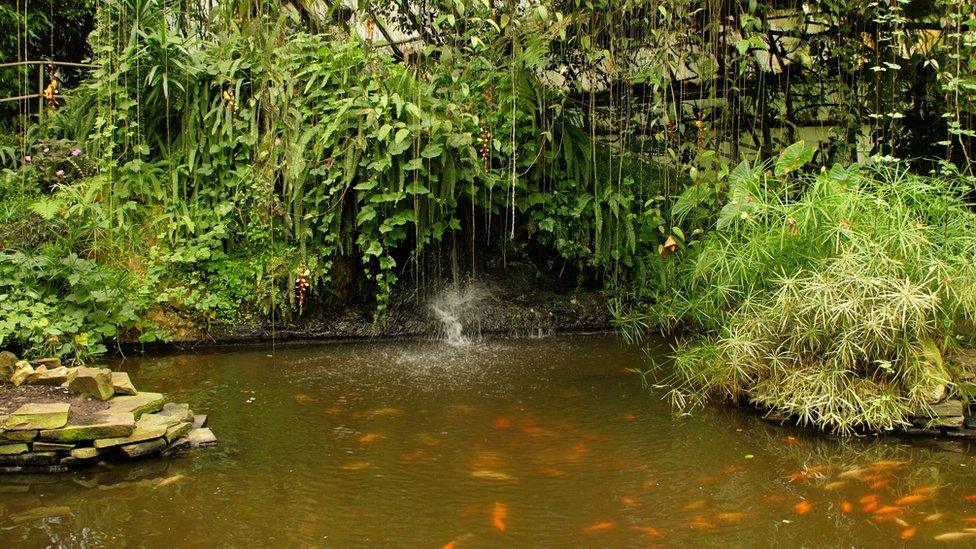
Some turtles are now living in the park's conservatory
Mr Stamp said trying to catch them in the lake was "very, very difficult" as they are pretty speedy.
Although the terrapins may not be designed to live in Welsh waters, it looks like they have made Roath Park their home.
"They're from Florida, Mexico, warmer areas and they've suddenly been dropped into a lake, in a country where we get seasons, we get cold winters, and they survive," said Mr Stamp.
"So I kind of have respect for them, the fact that they've survived."
- Published18 September 2017
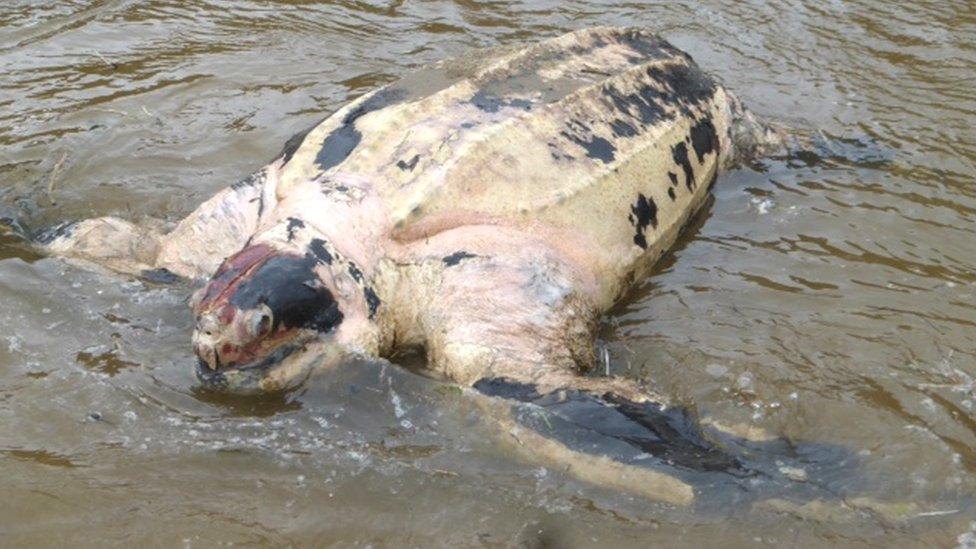
- Published19 June 2017
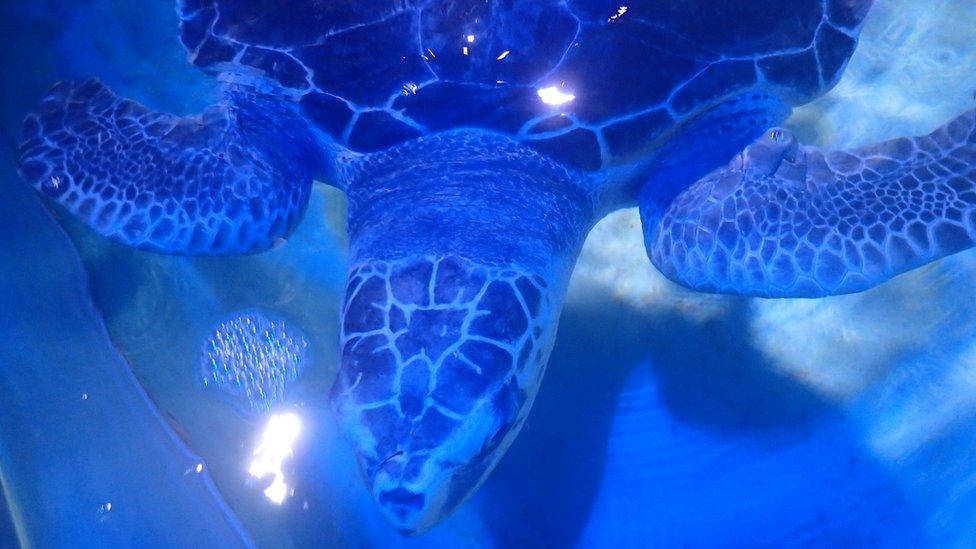
- Published12 January 2016
